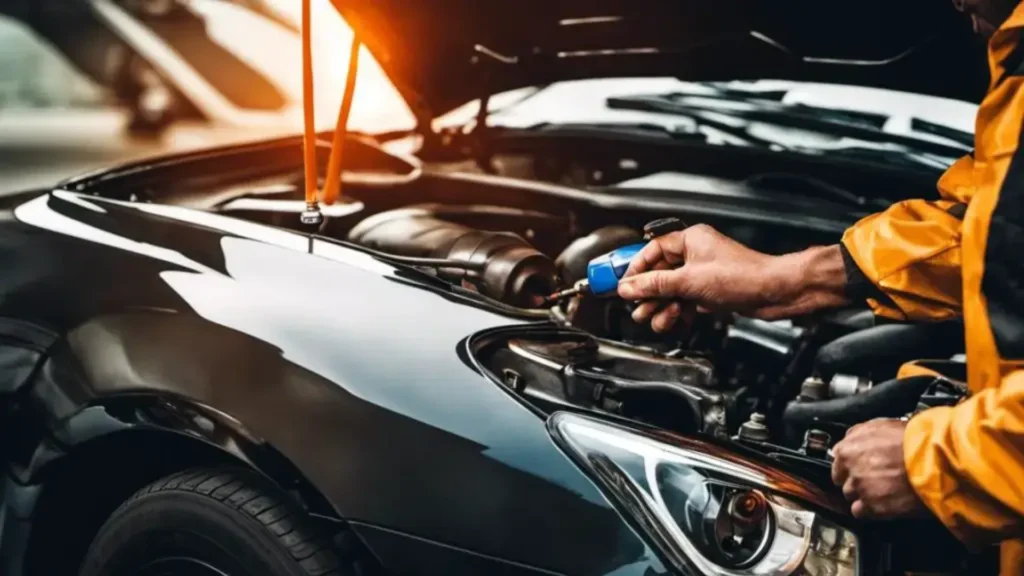Learn essential tips to maintain our car’s health and performance, ensuring smooth operation and a longer lifespan.
Table of Contents
Maintain Our Car’s: Why Car Maintenance Matters
We all rely on our cars to get us where we need to go, but how often do we think about their health? Car maintenance isn’t just about preventing breakdowns—it’s about ensuring your vehicle runs smoothly, efficiently, and lasts longer. From regular check-ups to small fixes, every action you take now can save you big in repairs and fuel efficiency down the road. Let’s dive into the top tips for keeping your car in tip-top shape!

1. Regular Oil Changes
Why is Oil Important?
Oil is the lifeblood of your car’s engine. It lubricates moving parts, reduces friction, and prevents overheating. Without fresh oil, the engine could wear out faster and fail.
How Often Should You Change Oil?
Typically, you should change your oil every 3,000 to 7,500 miles, depending on your vehicle and oil type. Consult your car’s manual for specific recommendations. Regular oil changes ensure that your engine stays healthy and runs efficiently.
2. Check the Tires
Tire Pressure: Why It Matters
Proper tire pressure is crucial for your car’s safety and fuel efficiency. Under-inflated tires can cause poor handling, increased tire wear, and even accidents. Over-inflated tires can lead to blowouts. Aim to check your tire pressure at least once a month.
Tire Tread Depth and Alignment
Keep an eye on the tread depth. If your tires are bald, they won’t grip the road properly, especially in wet conditions. Tire alignment is another important factor that affects the smoothness of your ride. Misaligned tires can lead to uneven wear and a bumpy ride. A quick visit to a mechanic can resolve alignment issues.
3. Inspect the Brakes
Signs Your Brakes Need Attention
Brakes are essential for your safety. If you hear squeaking or grinding noises, experience a vibrating brake pedal, or notice a decrease in stopping power, it’s time to have your brakes inspected. Regular brake checks can prevent major accidents and costly repairs.
Why Brake Maintenance is Crucial
Ignoring brake problems can be dangerous, leading to more extensive damage to the braking system. Keeping your brake pads, rotors, and calipers in good condition ensures you have the stopping power when you need it most.
4. Replace the Air Filter
When to Replace Your Air Filter
A clean air filter is essential for your engine’s performance. It helps your engine “breathe” better by filtering out dirt, debris, and other contaminants. Replace the air filter every 12,000 to 15,000 miles, or more often if you drive in dusty conditions.
5. Keep the Battery Healthy
Checking Battery Voltage
A dead battery is one of the most common causes of car breakdowns. Check your battery regularly for signs of corrosion and ensure it holds a proper charge. A mechanic can check the battery voltage to confirm it’s in good condition.
Signs of a Dying Battery
If your car is slow to start, you hear a clicking sound, or you see the “Check Battery” light on your dashboard, your battery may be on its way out. Replacing the battery at the first signs of trouble is cheaper than dealing with a breakdown.
6. Regular Fluid Checks
Types of Fluids to Check
Your car has several vital fluids: oil, coolant, brake fluid, transmission fluid, and power steering fluid. These fluids help your car run smoothly and prevent overheating or engine damage. Make sure to check these fluids regularly and top them up when needed.
How to Top Up Your Fluids
Topping up fluids is simple—just locate the reservoir for each fluid, check the levels, and add the appropriate fluid as needed. Always use the type specified in your car’s manual.
7. Keep the Exterior Clean
Washing Your Car Properly
Washing your car isn’t just about aesthetics—it helps remove dirt, salt, and grime that can corrode the paint and bodywork. Use a mild car detergent and a soft sponge to avoid scratching the surface. Don’t forget to clean the undercarriage to prevent rust buildup!
Protecting Your Paintwork
Waxing your car every few months adds a protective layer to the paint and helps preserve its shine. It also makes washing easier by preventing dirt from sticking to the surface.
8. Don’t Ignore Warning Lights
What Do Warning Lights Mean?
Those little lights on your dashboard are there for a reason! From the oil pressure light to the check engine light, these warnings should not be ignored. They often signal underlying issues that could cause bigger problems if left unchecked.
When to Seek Professional Help
If a warning light comes on, consult your car’s manual for guidance. If you’re unsure, it’s always a good idea to take your car to a mechanic. Ignoring these lights could lead to bigger, more expensive issues.
9. Change the Timing Belt
When to Replace the Timing Belt
The timing belt controls the timing of your engine’s valves. If it breaks, it can cause significant engine damage. Most manufacturers recommend replacing the timing belt every 60,000 to 100,000 miles, but this varies by make and model.
10. Maintain the Cooling System
How the Cooling System Works
Your car’s cooling system keeps the engine from overheating. It circulates coolant through the engine, absorbing heat, and then cools it in the radiator. Without a functioning cooling system, your engine could overheat and seize up.
Signs Your Cooling System Needs Attention
If you notice your engine temperature is rising, or if you see coolant leaking, it’s time to get your cooling system checked. Regular checks of the coolant level and radiator can prevent overheating.
Conclusion: Keep Your Car Running Smoothly
Maintaining your car is not just about preventing breakdowns—it’s about getting the most out of your investment. Regular maintenance can extend the life of your vehicle, improve fuel efficiency, and keep you safe on the road. It may seem like a lot, but taking small steps to care for your car will pay off in the long run.
FAQs
How often should I change my car’s oil?
It’s generally recommended every 3,000 to 7,500 miles, but check your owner’s manual for specific intervals.
What is the best way to maintain tire health?
Regularly check tire pressure, inspect tread depth, and get your tires rotated and aligned periodically.
How do I know when to replace my car’s battery?
If your car struggles to start or the battery light appears on your dashboard, it may be time for a replacement.
Is it really necessary to wax my car?
Yes, waxing protects your paint and makes it easier to clean while preventing long-term damage from the elements.
Can I ignore a warning light on my dashboard?
No! Warning lights should never be ignored as they often indicate serious issues that need immediate attention.





